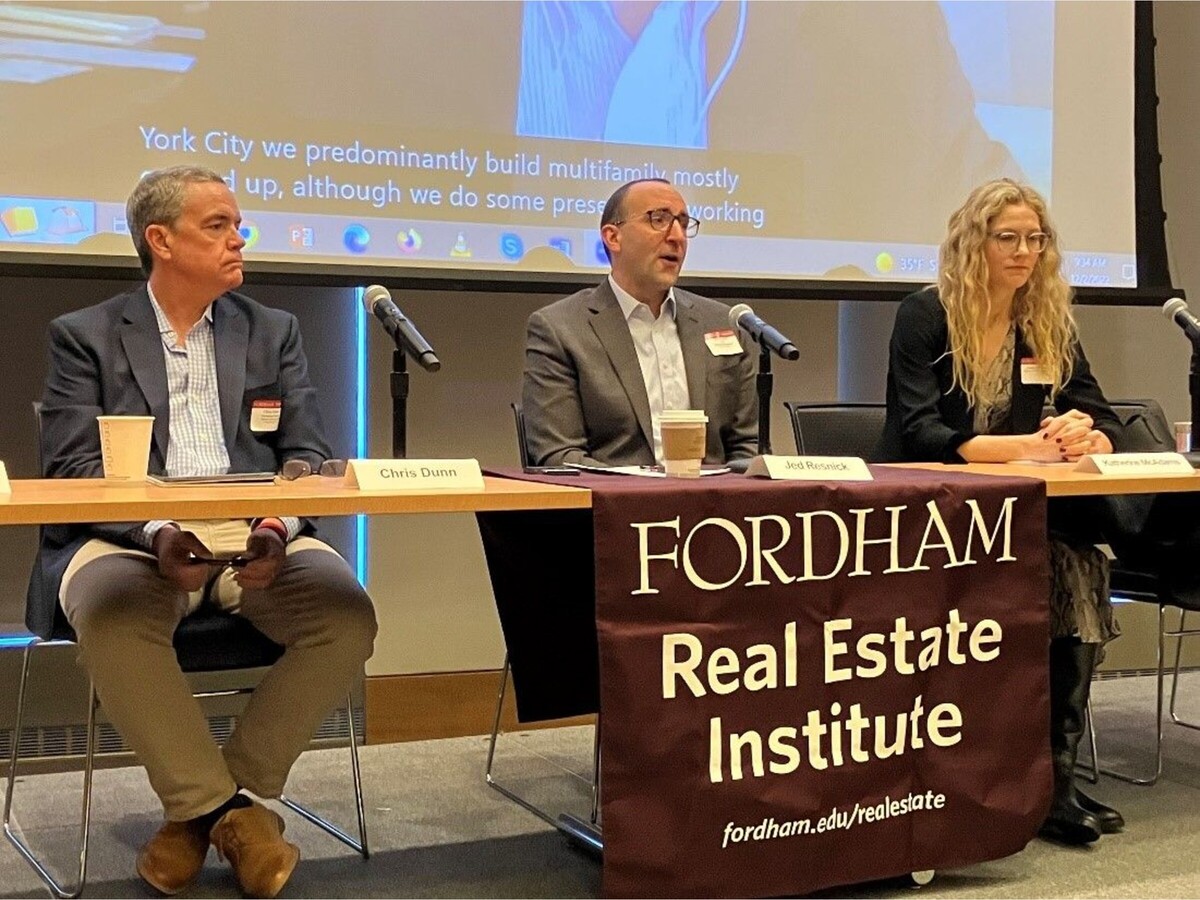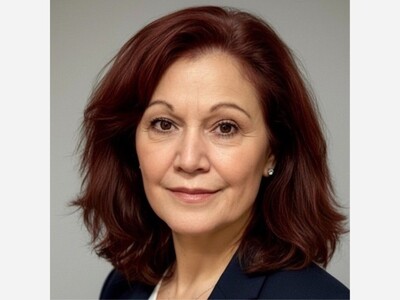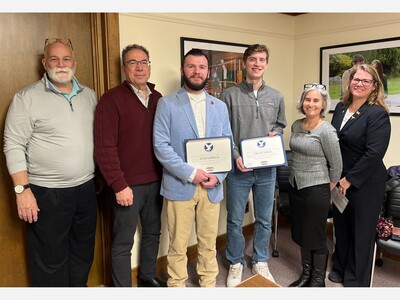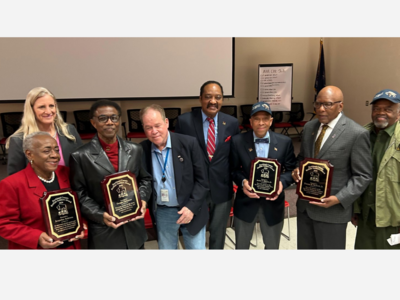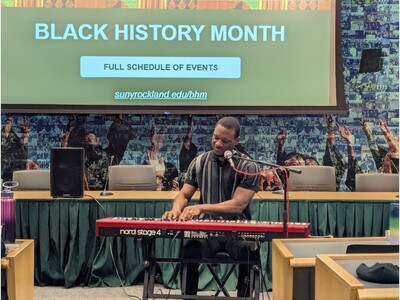Collaboration Is Needed to Solve the Affordable Housing Crisis
Fordham University Hosted Industry Experts in a Panel Discussion on Supply Solutions
Top minds in affordable housing development and lending discussed the underlying causes of supply shortages and potential solutions at an event hosted by the Fordham Real Estate Institute (REI). Business and industry professionals attended “Solving the Affordable Housing Crisis,” part of Fordham REI’s Visionary Series CCL, at Fordham’s School of Law Dec. 2, both in-person and virtually.
The panel was moderated by Lou Mirando, REI Executive Advisory Council co-chair and CEO of Streamline CRE Funding Group and featured Chris Dunn, Managing Partner, Mission Peak Capital; Michael LaCour-Little, Principal, Fannie Mae, Economic and Strategic Research Group; Katherine McAdams, Director, Community Lending & Investment (CLI), Wells Fargo; and Jed Resnick, CEO, Douglaston Development.
“There’s been a lot of multifamily construction in recent years, but the majority is Class A luxury properties,” said LaCour-Little. “For affordable units, the supply will have to come from downward filtering – that is as units get older and cheaper, natural affordability occurs.”
“I don’t know about the rest of the country, but we’re not building plenty of multifamily housing here in New York, there’s just not enough,” said Resnick. “The single biggest challenge in building anything is finding land, and land is only scarce because of government [zoning] regulation. The low availability of land is a false constraint.”
“In terms of manufactured housing, the cost structure is very attractive for affordable housing but one of our biggest challenges in NIMBYism,” said Dunn. “If you could develop in a lot of these markets that are more friendly to zoning rights, manufactured housing could help because it’s a cheaper price point.”
“Regardless of whether or not the government has been part of the problem, they are absolutely part of the solution,” said McAdams. “We can’t do any of this without their support and cooperation and zoning is really where a lot of this does begin.”
She added, “zoning is very contentious on whether it should be decided at the neighborhood, borough, citywide, or state level. Here in New York City, the City Council is responsible for making a lot of decisions and they practice Member Deference and let the local member decide. I would like to see more collaboration from the Council and the government to end that practice so one person isn’t deciding the fate of a project.”
“There’s plenty of community opposition to these projects in many cases because the perception is often that density is bad because it signals gentrification and that it displaces, although there’s data that shows that even market rate development in communities doesn’t increase rents,” said Resnick.
The panel discussed other supply solutions beyond new development.
“Accessory Dwelling Units – or ADUs – are an easy solution because a lot of them already exist but aren’t legal in New York right now. There is a proposal in front of the legislature for their next session to approve and legalize those and I hope that’s something that can get done,” said McAdams. “It not only provides more housing but it can help current homeowners with a little bit more income to offset other rising costs they’re facing due to inflation.”
“Very little workforce housing for people in that middle band of the income distribution is being built right now because the tax abatement that financed most of it, 421A, expired in June,” said Resnick. “And converting B and C office buildings to residential doesn’t make sense because the building typology doesn’t lend itself to code compliant housing. If we see a massive sustained vacancy in these buildings, they might become cheap enough to make financial sense, but we’d also need some regulatory creativity to expand what’s allowed.”
“It’s conversations like these that encourage collaboration between government, developers, and lenders,” said Ryan O'Connor, REI Executive Advisory Council Chair and CEO of Clinton Management. “That is the path forward in solving the affordable housing crisis in New York City and across the country.”
For information about REI, the Executive Advisory Council and Scholarship 250, click here. Fordham REI’s Visionary Series CCL is a five-year campaign tied to the 250th anniversary of the United States in 2026.
ABOUT THE FORDHAM REAL ESTATE INSTITUTE
The Fordham Real Estate Institute currently offers a Master of Science in Real Estate, a Master of Science in Real Estate Development, Master of Science in Construction Management, advanced graduate certificates in real estate finance, development, management and construction management, a Bachelor of Science in Real Estate, and a comprehensive array of professional certificates in real estate and construction at its campuses in Manhattan and West Harrison, N.Y. The programs are developed and taught by leading industry practitioners and are centered on imparting real-world professional skill sets. Flexibility and convenience are program hallmarks as classes can be taken in-person, online, and at various paces. REI is a part of Fordham’s School of Professional and Continuing Studies. For more information, visit www.fordham.edu/realestate.
PHOTO CAPTION: “Solving the Affordable Housing Crisis” panel members at Fordham University’s Dec. 2, 2022 event, held in New York City, were, from left: Chris Dunn, Managing Partner, Mission Peak Capital; Jed Resnick, CEO, Douglaston Development; and Katherine McAdams, Director of MFH Affordable Lending, Wells Fargo. Michael LaCour-Little, Principal, Fannie Mae, also virtually participated in the panel and the moderator was Lou Mirando, REI Executive Advisory Council co-chair and CEO of Streamline CRE Funding Group Economic and Strategic Research Group (not pictured).

